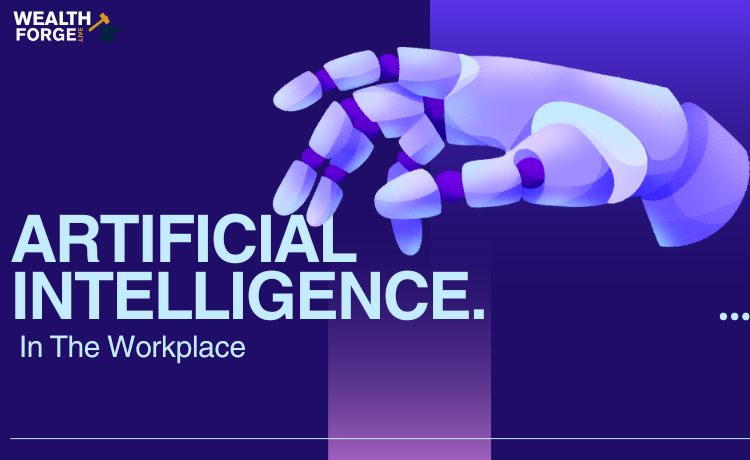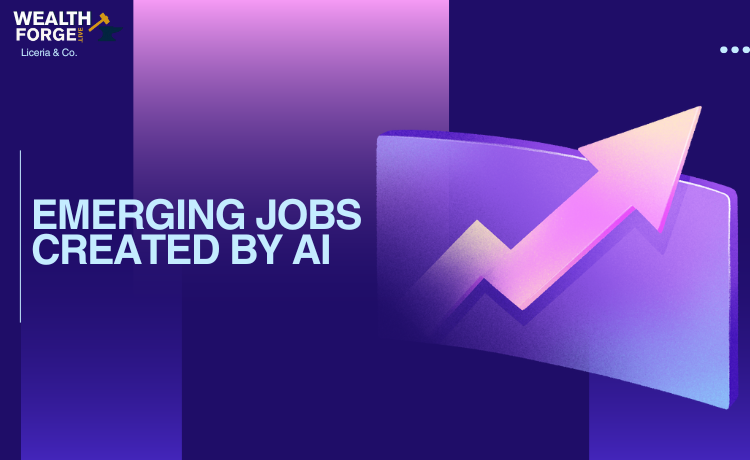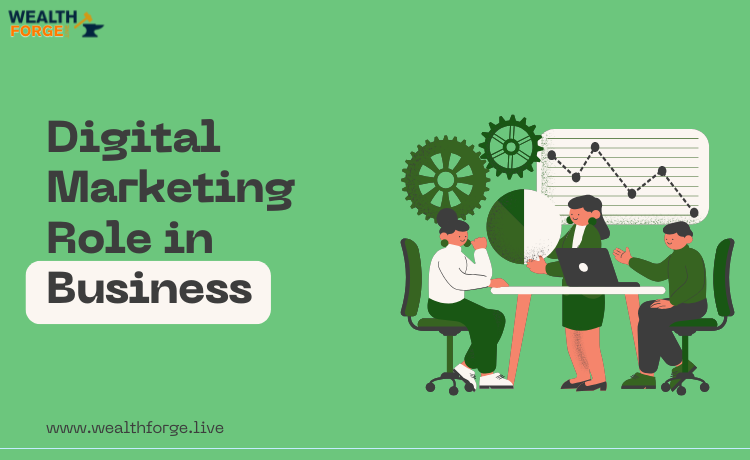Artificial intelligence is revolutionizing job markets across the globe, sparking both excitement and concern.
Did you know that up to 375 million workers worldwide may need to switch jobs or learn new skills by 2030 due to AI and automation, according to a McKinsey report?
That number is staggering! The way we work is changing at breakneck speed, and if you’re a job seeker, career planner, or student, the future of work has never been more thrilling-or uncertain.
This blog unpacks how AI transforms today’s workplaces, which jobs are most vulnerable, which careers are emerging, and how you can stay one step ahead.
Whether you’re worried about robots taking your job or excited about new career possibilities, this guide gives you the knowledge and actionable tips you need to thrive in the age of intelligent machines.
What we have cover!
- 1 The Current State of AI in the Workplace
- 2 Potential Job Losses Due to AI
- 3 New Career Paths: Emerging Jobs Created by AI
- 4 The Importance of Upskilling and Reskilling
- 5 How Education and Training Must Adapt
- 6 FAQs About AI and the Future of Work
- 7 Ethical Considerations of AI in the Workplace
- 8 Take Charge of Your Future in the AI Age
The Current State of AI in the Workplace

Artificial intelligence isn’t coming. It’s already here! AI technologies have woven into everyday business operations from self-checkout machines at retail stores to AI-driven analytics engines in banking. Understanding the current landscape is the first step to confidently navigating the future.
Where Is AI Making Its Mark?
- Manufacturing: Robotics and automated assembly lines have dramatically boosted production speed and precision.
- Healthcare: AI-powered diagnostics, like image analysis for radiology, sometimes detect diseases faster than human doctors.
- Finance: AI algorithms are crunching big data to spot fraud and optimize investments.
- Retail: Recommendation systems (think Amazon’s “Customers who bought this…” feature) personalize shopping experiences for millions.
- Customer Service: Chatbots and virtual assistants now handle everything from FAQs to booking appointments.
Real-World Examples
- Walmart: Uses AI-driven robots to scan shelves and manage inventory, freeing up human workers for more complex tasks.
- JPMorgan Chase: Their COIN platform reviews legal documents at lightning speed, a process that previously took thousands of hours for lawyers and back-office staff.
- Healthcare Startups: Zebra Medical Vision uses AI to analyze medical imaging, speeding up the detection of critical illnesses.
Potential Job Losses Due to AI
The question everyone is asking: Is my job safe from automation? Not all jobs are equally exposed, but the risk is real for specific roles.
Jobs at High Risk of Automation
- Routine Manual Jobs: Machine operators, assembly line workers, and cashiers face growing automation risk.
- Administrative Support: Data entry clerks and telemarketers could significantly decline as AI tools become more sophisticated.
- Transport and Logistics: Autonomous vehicles threaten roles like truck driving and delivery.
What Skills Are Easiest to Automate?
- Predictable, Repetitive Tasks: Anything broken down into step-by-step instructions is ripe for AI automation. This includes data entry, basic customer inquiries, and structured manufacturing tasks.
- Low-Level Decision Making: Algorithms can now approve loans, sort applications, and filter job candidates.
The Economic and Social Impact
Mass automation could trigger short-term job losses, wage stagnation, and economic disparity if not managed well. Regions and sectors that rely heavily on automatable tasks may feel the most fabulous squeeze. However, history shows that technological change also drives new industries and opportunities! The challenge is making sure the transition is smooth for everyone.
New Career Paths: Emerging Jobs Created by AI

Don’t panic! While AI edges out some jobs, it’s also creating stimulating new roles that never existed before. The future of work is about adaptation and upskilling, not just survival.
Exciting Roles on the Rise
- AI Specialists & Machine Learning Engineers: The demand for experts who build and maintain AI systems is soaring.
- Data Scientists & Analysts: Interpreting vast datasets is key to making AI work.
- AI Ethicists: Companies need experts to ensure AI systems are fair, transparent, and unbiased.
- Human-AI Trainers: Even AI needs a teacher! These professionals curate data and correct errors to improve system performance.
- Robot Maintenance Technicians: Who fixes the robots? Human technicians, of course!
Skills You’ll Need
- Programming and Coding: Python and R are hot languages for AI development.
- Data Literacy: The ability to interpret data and draw actionable insights is invaluable.
- Critical Thinking & Creativity: AI handles data and patterns, but humans excel at innovating and solving ambiguous problems.
- Ethics and Communication: You’ll need to understand and explain the societal impact of AI solutions.
Case Study
IBM: Their Watson Health division collaborates with clinicians to improve diagnostics using AI, but human oversight is essential to translate insights into patient care. This has led to hybrid roles that bridge medicine and technology.
Know: How to Prepare Your Finances for Anything
The Importance of Upskilling and Reskilling
Upskilling can turn today’s job threats into tomorrow’s opportunities! Continuous learning is your secret weapon for future-proofing your career.
Success Stories in Upskilling
- AT&T: Launched an ambitious program retraining over 100,000 data science and cybersecurity employees, empowering them to move into cutting-edge roles.
- Amazon: The Amazon Career Choice Program pre-pays 95% of tuition for employees to learn in-demand skills outside of technology.
How Can You Get Started?
- Identify Transferable Skills: Communication, leadership, and creativity won’t be replaced by machines anytime soon.
- Learn Digital Skills: Explore free online resources (like Coursera, LinkedIn Learning, and edX) to pick up coding, data analysis, and AI fundamentals.
- Seek Real-World Projects: Apply your learning in internships, freelance projects, or open-source collaborations.
Tip: Many employers now look for a “learning mindset.” Show your willingness to adopt new technologies!
How Education and Training Must Adapt
The traditional classroom is evolving. Educational institutions must keep pace to prepare students and workers for careers that don’t exist yet!
Modernizing the Curriculum
- AI and Digital Literacy: Teach coding, machine learning, and data analysis from an early age.
- Project-Based Learning: Real-world problem solving and collaborative work are now must-have skills.
- Ethics and Societal Impact: Help students understand not only how AI works, but how it affects real lives.
The Role of Vocational and Lifelong Learning
- Bootcamps and Online Courses: These flexible options allow fast acquisition of in-demand skills for all ages.
- Public-Private Partnerships: Tech companies partner with governments to offer tailored training for local industries.
Creativity, Critical Thinking, and Problem-Solving
AI may be faster with data, but humans shine in innovation, empathy, and thinking outside the box. These are skills worth nurturing!
FAQs About AI and the Future of Work
Will all jobs eventually be automated?
No! While some repetitive tasks will disappear, most jobs will adapt, with humans overseeing, troubleshooting, and innovating alongside AI.
How can workers stay relevant?
Adopt a growth mindset. Seek AI and digital tools training, but also focus on “human” skills like creativity and leadership.
Are schools teaching enough AI skills?
Progress varies, but the best curricula now blend technical skills, critical thinking, and ethical discussions around technology.
How do companies ensure AI is used ethically?
Innovative businesses develop strict guidelines, audit algorithms for bias, and prioritize transparency.
Ethical Considerations of AI in the Workplace
We can’t talk about AI at work without facing tough questions. Algorithms can inherit human biases, potentially amplifying discrimination. For example, Amazon scrapped an AI recruiting tool after discovering it was unfairly biased against women.
Ensuring Fairness and Transparency
- Audit AI Regularly: Companies must test algorithms for hidden biases.
- Build Diverse Teams: Inclusion reduces the risk of narrow thinking in AI design.
- Prioritize Transparency: People have a right to understand how AI makes decisions that affect their lives.
Addressing these ethical challenges head-on helps build trust and ensures AI benefits everyone, not just a privileged few.
Take Charge of Your Future in the AI Age
AI is transforming the world of work at record speed! The future holds both risks and rewards, but you have the power to shape your path.
- Stay Curious: Keep learning, experimenting, and adapting.
- Invest in Yourself: Pursue new skills and step out of your comfort zone.
- Connect with Others: Network, join communities, and share knowledge.
Want to go deeper? Check out reputable sources like the World Economic Forum’s “Future of Jobs” report, LinkedIn Learning’s AI courses, or explore online communities in tech and career growth. The best way to beat the robots? Become more human than ever!
